Shaping the Future: Service-Learning for ESD
An Erasmus+ project linking Service Learning with Education for Sustainable Development
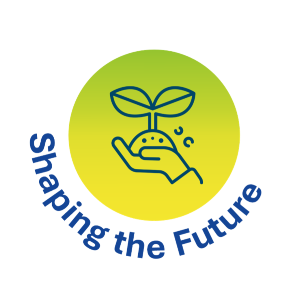
An Erasmus+ project linking Service Learning with Education for Sustainable Development

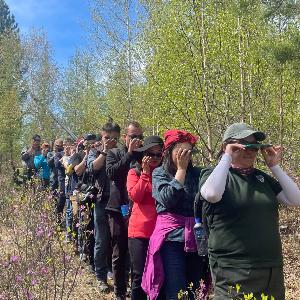
© el mundo
What do we want to achieve by implementing our project?
This project aims at using the potential of (International) Service-Learning for Education for Sustainable Development. An educational concept will be created and tested, which equips universities and other teacher training institutions to implement high-quality trainings and seminars on SL for ESD. The concept also assists teachers to implement SL projects focusing on sustainability and sustainable development with their pupils.
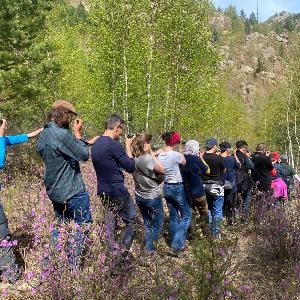
© el mundo
What is our motivation behind this project and what do we focus on?
At the core of this project is a fundamental understanding of the potentials of (International) SL for ESD and how this approach can be used and adapted for an international educational framework for teachers.
A special focus will be on how to address global problems and goals on a local level and how to use civic engagement on the local level to reach curricular requirements whilst working towards a more sustainable community/world and reflecting upon global challenges.
Since sustainable development should concern all actors around the globe and ESD or the SDGs were designed for global implementation, we see the potential adding cross-border components to the teaching and learning method Service-Learning when linked to sustainability. While SL projects can be designed best by the students themselves (accompanied by teachers) with a direct local impact, we are convinced – in regard to establishing strong alliances for democratic citizenship – that SL for ESD should also be developed as well as trained on a transnational setting.
This believe sparked our project. We, the four project partners, are designing an educational framework which we will publish as a handbook concerning this endeavor. The goal is to equip teachers and teacher trainees with the necessary competences and methodology to implement border crossing SL projects on ESD.
Not the success of each SL project is at the core. The learnings made while working on a project, balancing conflicting goals and providing a service as well as the reflection are most relevant and will enrich all actors involved.
Service-Learning (SL) is a form of teaching and learning that combines the – social – engagement of students with subject-related learning.
Service-Learning projects are planned together with the partners from civil society, non-profit organizations, public authorities or the private sector. Students can apply what they have learned at school or university, take on responsibility and acquire useful skills such as collaboration, critical thinking and problem solving. Reflecting on learners’ experiences and linking them to the curriculum is an important part of SL as well.
Education for Sustainable Development (ESD) is a global education campaign which aims to empower individuals to think and act in a sustainable way and to enable all people to understand the impact of their own actions on the world and to make responsible, sustainable decisions.
The Sustainable Development Goals (SDGs; see below) and also the Inner Development Goals, IDGs – a framework co-created by more than 1.000 experts, scientists and practitioners that aims to help people understand what inner development can look like and what inner skills are needed for sustainable development – are important for ESD.
Here you can find out more about the IDGs: innerdevelopmentgoals.org
However, ESD is a pedagogical, methodical and didactical concept. Next to the SDGs and IDGs, participative methods are characteristic. Since Service-Learning (see above) is all about student participation, it can be a great teaching-learning format to support sustainable development. Our Erasmus+ project will combine SL with ESD and explore its potential.
The 17 Sustainable Development Goals (SDGs) are a global blueprint to end poverty, protect the planet and ensure peace and prosperity by 2030. They were adopted by the United Nations in 2015 and require action from all sectors and stakeholders.
Here you can find out more about the SDGs: sdgs.un.org/goals

© el mundo
Our Handbook on SL for ESD is nearly ready for publication – STAY TUNED.
We are already using our findings to design and implement seminars or trainings in Germany as well as Romania.
We look forward to sharing our experiences and knowledge on how to facilitate SL projects for ESD with your students.
Even if you just want to find out more about either the educational concept – Education for Sustainable Development or the learning format – Service-Learning, our handbook can help you.
"This handbook is an invitation – to rethink how we teach, how students learn and how schools can engage with the wider world."
During our meeting in Munich, we shot a video with all partners. Take a look at our SEED project and learn more about Service-Learning for Education for Sustainable Development:
2:44 min | 07.11.2025 | © el mundo
In March 2026, the team is going to meet again. In Cluj we will discuss the implementation and dissemination of our findings collected in the handbook. We will also reflect on the whole project and our transnational, transcultural collaboration on Service-Learning for Education for Sustainable Development.
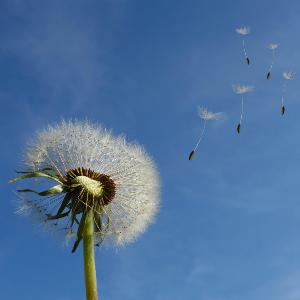
© pixabay
What results do we expect our project to have?
The project results and outcomes will be:
An educational framework for Education for Sustainable Development through (International) Service-Learning
… on the basis of which we will derive:
Who are the project partners and who is leading the project?
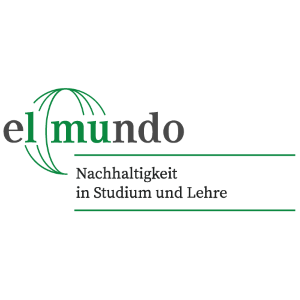
© el mundo
LMU EL MUNDO
As one of Europe’s leading research institutions the LMU (Ludwig-Maximilians-Universität) Munich, Germany addresses the great questions affecting people, society, culture, the environment and technology. The el mundo branch focuses on sustainability in studying and teaching. Central to our Erasmus+ project is the ESD (education for sustainable development) certificate program which is currently transformed into a permanent extension subject for teacher training students. In winter 2024/25 a Service-Learning module was included in the curriculum. Now, the el mundo program consists of 45 ECTS and prepares the future teachers for the challenges of a globalized world and sensitizes them for aspects of sustainability in school teaching and operation. The implementation of practical experiences is crucial.
Thus, we look forward to learning from our partners in this project and are happy to share our great ESD expertise – el mundo started in 2019 and went through several rounds of implementation, evaluation, revision and enlargement. We are already cooperating with around 15 partner schools and organizations in the Munich area in the field of sustainability and ESD. We are leading this project together with our three partners Stiftung Lernen durch Engagement, New Horizons Foundation and School Pavel Dan.
Here is a link to our website: el mundo – sustainability in studies and teaching
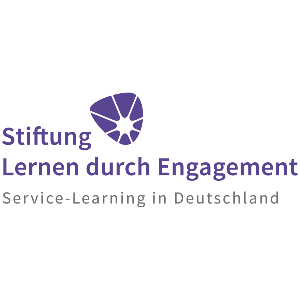
© Stiftung Lernen durch Engagement
STIFTUNG LERNEN DURCH ENGAGEMENT
The Stiftung Lernen durch Engagement (LdE) is a German NGO based in Berlin with the goal to develop and promote the learning and teaching method Service-Learning so that young people, regardless of their backgrounds, can experience high-quality education while taking an active part in our democratic society.
In 2022, LdE started the initiative to establish an informal European SL network which consists of ten different national SL organizations active in the development and promotion of SL in school education. Within the German SL network, several SL projects on the SDGs have been implemented. In addition, some members of the network conducted teacher trainings on the nexus of SL and ESD. In this project, LdE is supported by Regine Leonhardt and the foundation Stiftung Gute-Tat.
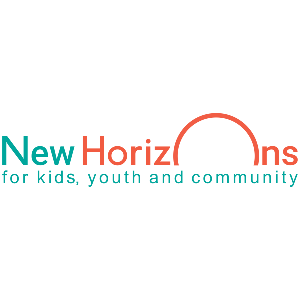
© New Horizons Foundation
NEW HORIZONS FOUNDATION
For 25 years, New Horizons Foundation – a Romanian NGO – has practiced education for transformation by innovating and supporting experiential education models that empower children and youth to develop themselves, their community, and the world they live in.
Its mission is to support children by strengthening the social systems around them – schools, families, and local communities – and by investing in the key adults in their lives: teachers, parents, school principals, librarians, and volunteers. When these adults are empowered, children and youth thrive.
The foundation develops, tests, and scales innovative educational models that include learning through community service projects (Service Learning), fostering resilience and teamwork through experiential methods (Outdoor and Adventure Education), and strengthening the emotional bond between parents and children through the Circle of Security approach.
Driven by the belief that education should be meaningful, relational, and rooted in real life, the New Horizons Foundation continues to build a future where every child has the opportunity to reach their full potential.
Here is a link to our website: New Horizons Foundation
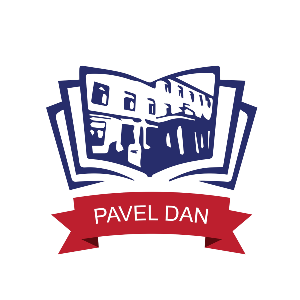
© Liceul Pavel Dan
LICEUL PAVEL DAN
Pavel Dan is a Romanian state institution with 70 years of experience in the field of educational services. In total just under 1.000 students are taught at the elementary, secondary and upper-secondary level in Cluj county. Pavel Dan’s mission is to ensure an education that assists pupils to become citizens capable of contributing to the sustainable development and welfare of the community.
Since 2021, Service-Learning activities have been part of the formal – like Service-Learning into the Classroom (New Horizons Foundation) – as well as non-formal education at Pavel Dan. To support the SL experience and make real, authentic activities, connected to the own community possible, the Aha Impact Club was founded.
Here is a link to our website: Liceul Pavel Dan
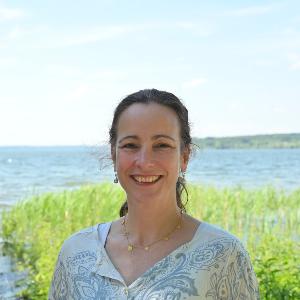
Koordination „el mundo – Nachhaltigkeit in Studium und Lehre“
Lehre Zertifikatsprogramm und Erweiterungsfach, Projektkoordination
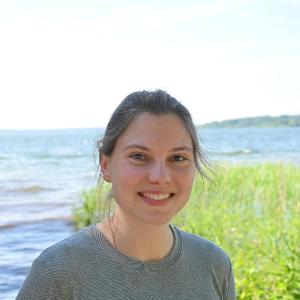
Wissenschaftliche Mitarbeiterin
OPENvhb Kurs, Erasmus+ Projekt Shaping the Future